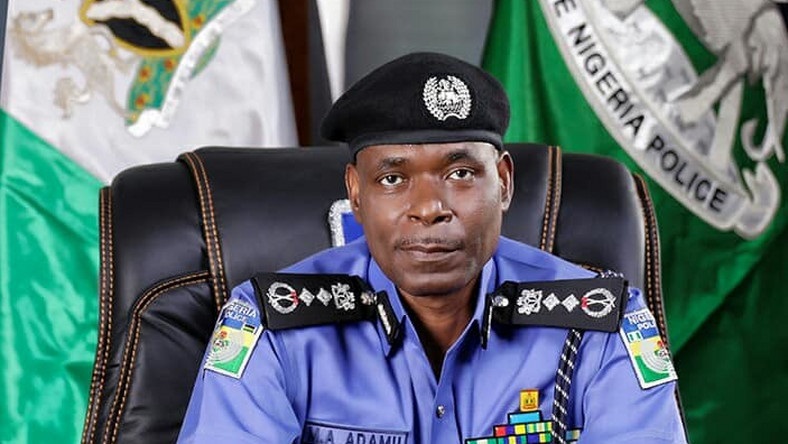The Nigeria Police Force says state governors will be responsible for the salary and upkeep of special constables being recruited to serve as community police officers.
The Deputy Inspector-General of Police in charge of Research and Planning, Adeleye Oyebade, stated this on Tuesday while featuring on a Channels Television’s programme, ‘Sunrise Daily’.
- Benue to recruit 2,300 community policemen, 460 volunteer guards
- Selection of community police officers ends August, says IG
President Muhammadu Buhari had last week approved N13.3bn for the take-off of community policing across the country with a view to tackling insecurity.
Oyebade said the community policemen, who would be part-time officers, would bear no arms, but would do more of intelligence gathering and tackling non-violent crimes.
“They’re special constables and they shall be recruited as community policing officers and the process of recruitment shall be guided by Section 49 to 50 of the Nigeria Police Act. So, the special constable is going to be an auxiliary police officer.
“We’re expecting them to put in 16 working hours in a week and the remuneration is going to be paid by the state government after we must have trained and retrained and got them deployed to the local government where they have been recruited because they know the culture, the language, the orientation and the topography of the area for them to be able to work with the police at that level,” the DIG said.
He added: “They’re not going to bear arms. When there are issues that need firearm usage, the police will come in and they’ll go together. Their role is intelligence gathering. They’re voluntary officers. It’s just stipends that’ll be given to them. I know that when they’ve been trained, they’ll be kitted and it’ll be uniform across the country.
“I don’t see any problem emanating from that because from the recruitment up till the training and deployment, we must have given them all that they need and they’ll have the powers, the privileges and immunity of police officers and they know that if they do anything contrary, they can be disciplined.”
Oyebade said the recruitment would be based on the state of origin and not the state of residence, stressing that anyone applying for the new police jobs would have to return to his or her own local government.
A presidential spokesman, Garba Shehu, who also featured on the same programme, said Buhari was particularly concerned about the sustenance of the arrangement, saying many of the states clamouring for the initiative still owed salaries.
He said the Inspector-General of Police, Mohammed Adamu, would determine the structure of all other security arrangements by states.
“Whatever name they go by, Amotekun or whatever, they’ll be streamlined and be run in accordance with the structure as defined by the IG. They’ll be localised, they’ll be owned by local communities, they’ll be managed by them. They can choose their own nomenclature but it doesn’t make a difference. There’s a general structure for all state and local council community policing mechanisms and this should abide in the states.
“So, we’re going to have a single type structure community policing across the country and whatever is not in line with this does not have a place in the new scheme of things.
“The essence of the government funding at this time is to do two or three things: one is to ensure training for those who are to be recruited to join the police service. Two, to enlighten the public about the functionality of the new system and three, to procure equipment. But above all is the need to streamline the processes embarked upon by the states and the sub-regions.
“As members of the community, we know ourselves better, we know all the nooks, the crannies, we know who is who and so, therefore, it is not difficult for intelligence to be supplied for effective law and order management in the community,” Shehu said.
On why it took Buhari some time to approve community policing, Shehu said: “For President Muhammadu Buhari, the concern has always been about the spread and abuse of weapons in the hands of police.
“He said it repeatedly that, look, a lot of the states that had clamoured for state police, many of them are unable to cope with salary payment.
“If you hire a community policeman and give him a gun, and keep him for five, six months without salary, what do you expect?
“Efforts have been made so that situations of this kind do not arise. So, therefore, there is a standard national procedure and prescription for each of the states to comply with.”
When contacted by Daily Trust, Abdulrazaque Bello-Barkindo, Head, Media and Public Affairs, Nigeria Governors’ Forum Secretariat, declined comment on the issue.
However, a source said representatives of the NGF yesterday had a virtual meeting with the IGP, the Minister of Finance and a representative of the Secretary to the Government of the Federation over the issue.
The source said the governors had not taken a position on the issue, but that they would later meet Buhari on it.

 Join Daily Trust WhatsApp Community For Quick Access To News and Happenings Around You.
Join Daily Trust WhatsApp Community For Quick Access To News and Happenings Around You.


